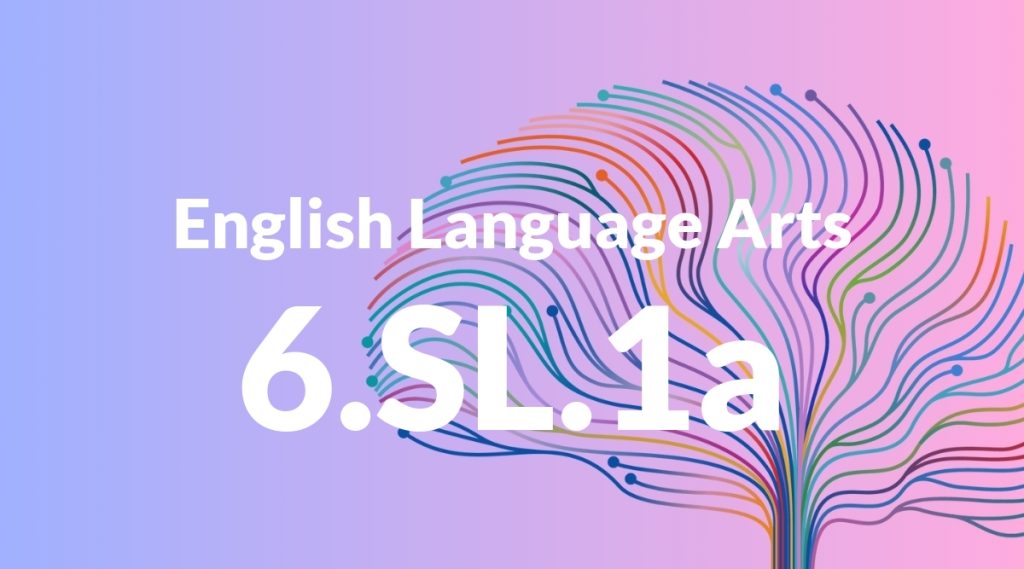Standard: 6.SL.1a – Come to discussions prepared, having read or studied required material; explicitly draw on that preparation by referring to evidence on the topic, text, or issue to probe and reflect on ideas under discussion.
Grade level: Grade 6
Subject: English Language Arts
Domain: Speaking & Listening
Teacher Overview
This standard emphasizes the importance of preparation and evidence-based discussion in Grade 6 English Language Arts. It aims to develop students’ abilities to engage thoughtfully and substantively in discussions by drawing on their prior preparation and using evidence to support their ideas. Students should be comfortable with reading comprehension and summarizing texts. They should also have some experience participating in group discussions to build on.
After mastering this standard, students will be able to engage in more complex discussions, utilizing advanced argumentation skills and critical analysis of different viewpoints.
Common Misconception 1
A common misconception is that students can engage in meaningful discussions without prior preparation. This is incorrect because preparation allows students to bring informed perspectives and evidence to the discussion.
Intervention 1
Teachers can implement structured preparation activities, such as guided reading sessions and use of preparation checklists, to ensure that students are adequately prepared.
Common Misconception 2
Another misconception is that personal opinions are sufficient for discussions without supporting evidence. This is incorrect because evidence strengthens arguments and helps to substantiate claims.
Intervention 2
Teachers can provide instruction on how to find, cite, and use evidence from texts during discussions to support their points.
Prerequisite Knowledge
Students should have basic reading comprehension skills, the ability to summarize texts, and some experience with group discussions.
Subsequent Knowledge
Students will develop advanced argumentation skills, the ability to critically analyze different viewpoints, and enhanced public speaking abilities.
Instructional Activities
- Role-playing different viewpoints in a debate
- Preparing and presenting book reports
- Conducting peer reviews of written work
- Organizing and leading group discussions on current events
- Engaging in Socratic seminars




